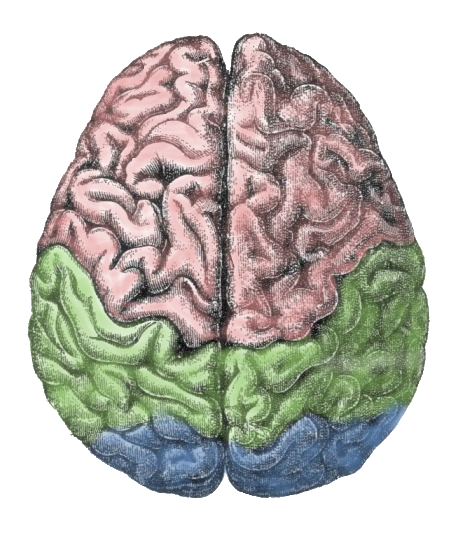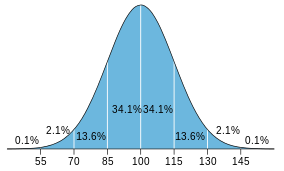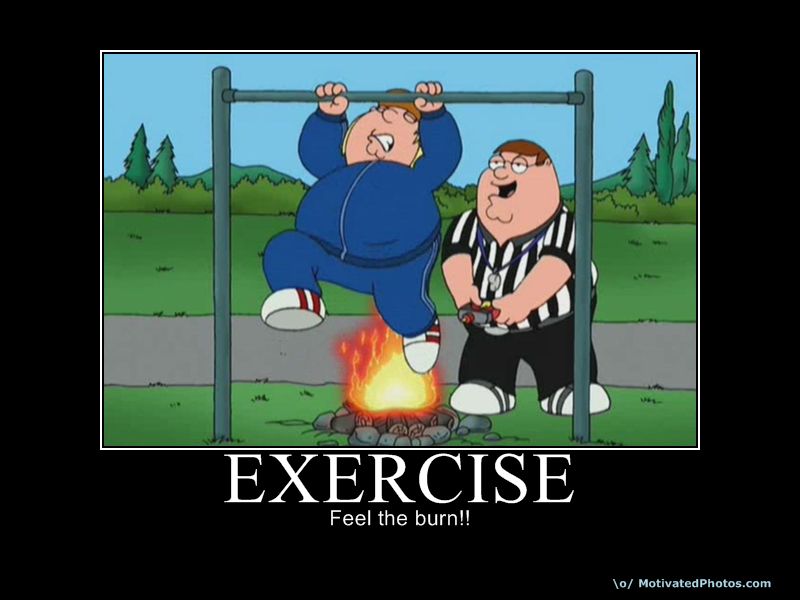A Brief History
From Wikipedia:
An intelligence quotient, or IQ, is a score derived from one of several standardized tests designed to assess intelligence.
Originally described by William Stern and implemented by Alfred Binet, IQ tests are widely used to compare the intelligence of children, military men/women, job applicants, and more. Often IQ tests are viewed with a negative connotation, likely because they are decisive, putting children in special needs classes, causing job applicants not to receive interviews, etc. Yet, IQ tests do have their value and if understood, you can improve your IQ and place yourself in a better situation throughout life.
Excerpts on the origin of IQ tests from About.com:
During the early 1900s, the French government asked psychologist Alfred Binet to help decide which students were mostly likely to experience difficulty in schools…
Faced with this task, Binet and his colleague Theodore Simon began developing a number of questions that focused on things that had not been taught in school such as attention, memory and problem-solving skills…
This first intelligence test, referred to today as the Binet-Simon Scale, became the basis for the intelligence tests still in use today…
Binet stressed the limitations of the test, suggesting that intelligence is far too broad a concept to quantify with a single number. Instead, he insisted that intelligence is influenced by a number of factors, changes over time and can only be compared among children with similar backgrounds (Siegler, 1992)….
The Stanford-Binet intelligence test used a single number, known as the intelligence quotient (or IQ), to represent an individual’s score on the test. This score was calculated by dividing the test taker’s mental age by their chronological age, and then multiplying this number by 100. For example, a child with a mental age of 12 and a chronological age of 10 would have an IQ of 120 (12 /10 x 100).
Usually, I am against block quotes however, I felt it was important to understand the origins of intelligence testing prior developing a successful strategy to improve intelligence.
What is Intelligence?
 Intelligence can be defined many ways and therefore can often be a difficult topic to discuss, calculate and in turn improve. Intelligence is usually defined as ones capacity for Memory, Logic, Problem Solving, Self-Awareness, Ability to Learn, Emotional Knowledge, and Creativity. Of course there are many more categories, sub-categories, sub-sub-categories, sub-sub… you get the picture. Therefore, rather than trying to dig deep into the broad term “intelligence” lets define intelligence as:
Intelligence can be defined many ways and therefore can often be a difficult topic to discuss, calculate and in turn improve. Intelligence is usually defined as ones capacity for Memory, Logic, Problem Solving, Self-Awareness, Ability to Learn, Emotional Knowledge, and Creativity. Of course there are many more categories, sub-categories, sub-sub-categories, sub-sub… you get the picture. Therefore, rather than trying to dig deep into the broad term “intelligence” lets define intelligence as:
Mental quality that consists of the abilities to learn from experience, adapt to new situations, understand and handle abstract concepts, and use knowledge to manipulate one’s environment.[1]
Notice the terminology, especially the part about “learn from experience” this is a good time to dispel a myth surrounding intelligence. Every human (baring injury or neurodegenerative disease) is capable of learning new things and as such is capable of improving their intelligence. According to Carol Dweck, author of MindSet 40% of people around the world believe intelligence is fixed, 40% believe you can grow and 20% were undecided. Those numbers simply blew my mind, and is why I feel the need to say it again:
Humans can improve their intelligence, it is not fixed.
Measurement
As stated in the excerpts on the history, IQ is historically calculated by determining a persons mental age and dividing it by their physical age. However, the modern way of calculating a persons IQ is by comparing their score with the statistical distribution of the current age group in which they fall. This modern approach is was developed by David Wechsler, and is called the Wechsler Adult Intelligence Scale. The questions on these modern IQ test will be used to examine memory, knowledge, creativity, spacial intelligence, logic, etc. usually being timed.
Since, most of the questions focus on features of intelligence which we are capable of improving, what IQ really seems to measure is at the time of examination where you stand compared to others. Meaning IQ is not always the best way to assess someones ability to achieve in school or perform functions for a particular job. In fact, IQ tests may be a poor assessment of children because they have relatively little control over their environment. As such children should not be classified as being “less intelligent,” just because they may have less knowledge due to coming from a less fortunate background. However, as people age, it becomes more difficult to increase your IQ because you have more knowledge to over come (though by no means impossible!).
The key “take home point” from this section is: your IQ is calculated by comparing you to your peers.
Statistical Evidence on Intelligence
Due to the relative infancy of neuroscience and our current minimal understanding of intelligence, the only way we can glean insight into the basis of our intelligence is through statistics. That being said, anything is possible and statistics do not prove anything. Further, there are many studies which are conflicting. I therefore will be adding tags such as “confirmed” if it has been confirmed across studies or “disputed” if it is probable, but there is some conflicting evidence.
- Roughly 40% of intelligence is inherited, the other 60% being influenced by your environment [2] (confirmed).
- Socio-economic status does not effect IQ [3] (disputed).
- Selectively breeding for “maze-brightness” in rats enabled offspring to be more capable of completing the maze in a shorter time spawn (vice versa with “maze-dull”) [4] (confirmed).
- A study in rats showed that the maze-dull rats breed who grew up in a stimulating environment vastly out performed the maze-bright rats breed who grew up in non-stimulating environments [5] (confirmed).
- Young adults nearly (excluding disease) always outperform older adults in memory tasks [6][7] (confirmed).
- Caloric restrictions (800 – 1200 calorie a day) or fasting periodically (1 – 3 days a week) has been shown to improve working memory and brain processing speed, as well as overall health and longevity [8][9] (confirmed).
Step 1 – Embracing the Possibilities
Prior to attempting to improve your IQ I recommend first taking an IQ test, learnmyself.com seemed to provide the “best” free IQ test. However, if you are really serious about determining your IQ, I recommend finding a psychologist who can provide both the examination and results. Although hiring a psychologist will cost some money and the test will take a fair amount of time the accuracy would be far superior.
To substantiate my claims that you can improve your IQ, you can view my IQ report from learnmyself.com: austin’s IQ Report. What you may notice when viewing my report, is that only my scores in word comprehension, numerical sequences, and spatial relationships are really out of the norm. The reason behind this, is that I have spent the past five years entirely focused on improving my knowledge, the most controllable factor in calculating your IQ.
Review points #1 – #4 in the Statistical Evidence on Intelligence section, each statistic points to intelligence being improved by environment, if that is the case, we are all in luck! Our environment is more or less entirely controlled by the decisions we make. Even point #2 refers to a study in which economic background does not determine IQ, rather the work ethic and “growth mentality” of the home is more important. If you embrace the idea that (a) you can control your environment through actions/choices and (b) at least 60% of your intelligence comes from environmental factors, then you can improve your intelligence.
Step 2 – Motivation and Perspective
Many believe increasing your intelligence can be a difficult if not impossible process, the real key is beating others in your age group. Recall that your IQ is calculated by determining your statistical standing in relation to the average in your age group (100 being the average). Since this is the case, all you really need to do is work slightly harder than those in your age group, but how much harder?
It is very difficult to determine how much effort you have to put in to increase your IQ, this is not an exact science after all. However, an educated guess would be that you have to emulate individuals who’s IQ is your target goal. That is to say, if you would like to increase your IQ from 100 to 120 you should work slightly harder than the 120 IQ individual and attempt to complete similar tasks, such as: workout, eat healthier, etc.
Although this may force you to make some changes in your daily routine it is not overly difficult. For example, taking just a mile walk per day day reduce the risk of neurodegenerative diseases (detrimentally effecting IQ) such as dementia by 50% [10], that is only 20 minutes a day of “working out.” Further, walking 20 minutes a day will give you the opportunity to listen to audio books, improving learning as well as health.
The point being, it is not “life changing” to increase your IQ, in fact 20 minutes a day can have a dramatic effect. Figuring out a way to generate your own motivation is key. Even though I cannot infuse you with motivation, I can tell you that it is easy enough to increase your IQ if you want to. I suggest using habitRPG if you enjoy gaming to help “gamify” your life, and keeping a log of all activities you do. At first motivation is easy, but on rough days it sometimes helps to remind yourself all the work you have put in and keep your motivation up by trying to maintain “streaks.”
Step 3 – Environment and Habits
 If you have the motivation, the next step is designing your environment and forming habits. In regards to IQ this is a fairly broad topic, having fairly stimulating environment with constant interaction, especially while young is important (see point #3 in statistics). If you are already older (15 yrs+) you can start designing your environment in ways conducive to learning. Below is a list of some of the most important factors in building your IQ in relation to environment and habits:
If you have the motivation, the next step is designing your environment and forming habits. In regards to IQ this is a fairly broad topic, having fairly stimulating environment with constant interaction, especially while young is important (see point #3 in statistics). If you are already older (15 yrs+) you can start designing your environment in ways conducive to learning. Below is a list of some of the most important factors in building your IQ in relation to environment and habits:
Alone Time – Set aside alone time in a quiet room one hour a day to simply research/do what ever your heart desires. This could even mean spending an hour reading /r/science on Reddit or subscribing to a few web blogs (such as this one!). Spending ~10 hours a week working on projects or doing research that you want helps to both motivate you and increase your capability of logic and reasoning (which is an important aspect of IQ). Autonomy is one of the most important aspects of learning, so do not let anyone into your alone time.
Minimize Down Time – Beyond having “alone time” you also should try to minimize down time (i.e. substitute interactive games for TV). For example, every time I drive to work I listen to an audio book or lecture series (the most recent one about Learning), the round trip driving time is about two hours. That means I can listen to 450 hrs of audio books or lectures per year (225 working days * 2 hrs). If we assume 15 weeks in an average university semester at 3 hour lectures per week that is 10 courses listened to per year. In other words, just driving too and from work each day you can cover an entires years worth of university lectures. Although those lectures will not be thoroughly understood and converted to long-term memory (since they don’t have my full attention), the lectures will give you ideas on where to study in your alone time, or if you would rather reinforce the lectures do example problems or write notes.
Sleep – Sleep is one of the most important aspects of learning, it effects memory[11], processing speed[12], innovation and decision making[13], and much more. When we sleep our brains are still relatively active, going through bouts of high activity to low activity in which memory is converted to long term memory[14], our brains attempt to process and fix problems, and it repairs itself. Seven to eight hours of sleep is very important and setting aside time in a quiet place where you can obtain restful uninterrupted sleep is probably the single most important thing you can do to improve your IQ.
Diet and Exercise – “Healthy body, healthy mind” is not just a catch phrase for yoga instructors. There is a significant amount of evidence that a healthy diet can dramatically improve cognitive functionality. Your brain consumes roughly 20% of your caloric intake[15], eating enough calories as well as healthy foods (i.e. food that causes heart attacks = bad) is an important step towards increasing intelligence. Regarding to specific vitamins, there is evidence[16] that using vitamin supplements (especially fatty acids, which can be obtained by eating fish as well) helps protect against cognitive decline if taken throughout life. Rather than diving deep into this topic I leave it to you to do research, there is a lot of material on this subject, but incase you don’t want to do research:
- A mild workout every day, such as mile or two walks are extremely beneficial and you will not gain much more benefit in terms of intelligence by working out more than this[10].
- 900 – 1200 Calories per day has been shown to increase cognitive capacity (point #6 in the statistics section).
- Diets such as the Mediterranean and Primal diets have been shown to decrease the chances of having a neurodegenerative disease and possibly can improve cognitive ability in later life.
- Both dieting and exercise can improve energy levels, treat depression (or increase happiness levels due to dopamine release) and in turn improve intelligence [17].
Share the Knowledge – Storytelling is a very effective way to encode knowledge, improve logic, learn to communicate, and learn a something new. Rather than explaining this further in this already long article, I suggest reading about it in a previous blog post: How Storytelling Influences Learning.
Self-Testing – Constantly testing oneself is one of the keys to improvement. When we test ourselves we assess what we know, how well we know it, and in turn where to study. One of the major faults I know I have, is that I “know” I know something, when often I have something confused or I have a misrepresentation. Using flashcards, communicating with others, writing blogs, they call can help you recognize faults in your logic or accent things you do not understand. Every time you have learned something, write it down and say it out loud, by re-encoding it you are converting it to long-term memory and you enable a testing at a later date.
Spend Time Groking – Attempt to mull over what you have learned, attach it to other memories to other thoughts and try to learn facts in context. If you are attempting to learn a new word try using it in two or three sentences in your head, perhaps write it down as well. These techniques enable easy retrieval for later use and will help you remember in the long term (as opposed to just a few months).
Learning a Second Language – Learning a second language does not have many direct improvements nor is it easy. However, it will improve your study habits, working memory, and again will help protect from cognitive decline. How much bilingualism can improve intelligence is still not known (at this time) and I suggest further research and I write a small article related to the subject titled Bilingualism and Pattern Recognition.
Don’t Over Study – It turns out our brains have a capacity to learn. It is best to study/practice only six hours a day [18].
My story and Closing Sentiments
The subject of intelligence is so large that it is hard to write a guide to improvement. Literally, everything ties into what we think, how we act, our brains processing speed, and so on. Throughout this article I have attempted to provide some clear explanations and methods for improving intelligence, since we are nearing the end of our time together I would like to share how I have gone from an IQ of ~100 at 8 years old to an IQ of ~150 at 22 years old.
To be upfront, I did not learn to read until the 5th grade. I more or less refused to learn and I was a pretty stubborn kid (still am) and I wrote a long story regarding the struggles of that decision in an article titled Please Excuse my Grammar. Because of this, my IQ score was dramatically lower than it might have been, and as such I am sure I have some genetic disposition to higher IQ (my Father’s IQ: 110 – 118, my Mothers: 125 – 130).
On the other hand, that was a significant improvement in IQ and it did take a lot of effort on my part, and I began working on my IQ about five years ago at seventeen. I had two teachers push me in particular (I wrote about it in Please Excuse my Grammar) and I decided I wanted to be the best I could be.
Since then, I have the following rules for myself:
- Dedicate two hours a day (minimum) to learning a new subject I have no knowledge of that I find interesting for myself. Autonomy is very important, so I intentionally search for topics I will not learn in school or on the job.
- Study on coursework for no more than four hours per day. This may sound counter intuitive, but because our brains seem to have a capacity for the amount of knowledge they can convert to memory at one time I avoid trying to cram knowledge in.
- Never, Never, Never cram for an exam. I study slowly over the course of weeks to months with flash cards, this ensures all knowledge is retained after the course is over (I continue the flash cards even after the course has concluded).
- Sleep 7 hours a day, this rule can be bent if and only if I have a project due. However, if I do break the rule I do not study until I am fully rested.
- Don’t waste time. Any time I have a spare moment I am considering a problem I am working on, I never “wonder,” immediately look something up and add it to an Anki Card.
- Never allow for a dull moment. I avoid people who are dull or not interesting, and I will not go out and “party” or anything that does not stimulate my brain. You may wonder if this has impacted my social life and to be honest it really hasn’t. I have a wonderful girlfriend, a group of friends I can talk to and fellow C.S. majors or employee’s who enjoy similar subject matter.
- Constantly try to innovate. One of the most important things to do is push yourself, by trying to improve everything you will learn new ways of doing things, and find pleasure applying new skills and knowledge.
- Always be open to being wrong, this is a toughie. Admitting you are wrong when you spend so much time trying to cram everything into your brain is a challenge, however admitting you are wrong quickly, doing research, and confirming results is the most important part of learning. Do not bother wasting time arguing either admit you are wrong, stand by your point (with evidence), or confirm that there is not enough evidence. Don’t argue with other about it either, there is usually no point.
- Share everything you learn with the world, hence this blog, reference: Learning Through Blogging.
Notice diet and exercise are not on the list. Those two particular points of improvement are fairly difficult for people with little time or money. However, I intend to start on a diet and begin exercising starting this fall and I will be sure to share it with you! In either case, those rules above have worked out very well for me and as I stated, it took only 5 years to really boost my IQ to the level of performance I desired for myself and you can too.





This was really interesting to me. I haven’t thought about improving my IQ, though I do make sure to spend time reading nonfiction or academic work and learning Spanish. I totally believe the mind capacity can atrophy; I know I’m not as sharp as when I was in school.
Still, I don’t focus on becoming smarter because I’m more outwardly focused. For me, life is about building and maintaining relationships. Giving and taking, helping others, deep conversations about life, problem solving in the real world. Working on improving my character more than my smarts, basically.
Not that it’s not valuable to build your knowledge base! I think it’s very relevant for careers, self-esteem, and even relationships (so you have a wide variety of things to talk about with people!)
I applaud your efforts and dedication to maximize your brain. It is good also that you are sharing it with the world. I think that many people lack the knowledge that they cam improve their mental abilities and IQ, mostly because I think “the system” tends to label us at an early age and we by default take on the role of the label. The is no one out there in elementary or middle schools talking to kids about improving their brain or whet it means to your future. We only hear results from basic learning minimums of reading and math. Children are unaware, even through high school, that there is a way to become “smarter” in regards to improving the ability of the brain to memorize and perform tasks and apply them faster to new learning. If we did know some of this, and possibly were taught some of this in elementary and jr high, the by high school’s level of development we could possibly have a real and accurate view of what a child’s true strengths and thus appropriate profession could be, and we could help them by showing them the link between their skills and the professions that use them. No where in school do you learn any of this, so kids leave high school lost today, and without even knowing their potential. In addition, that last test you take, the SAT or ACT, is given to tell you again that you are labeled, and you are not smart enough to go to college for many. I think this is ridiculous and Universities, at least at the state and local level, should abolish their use of these tests to place students.